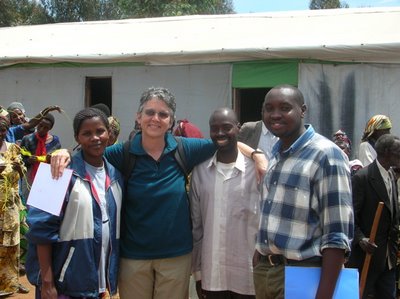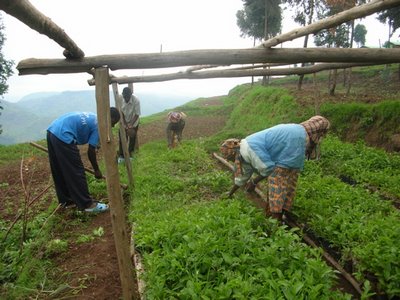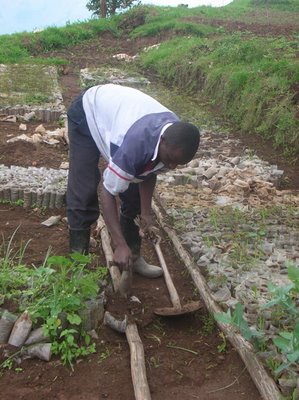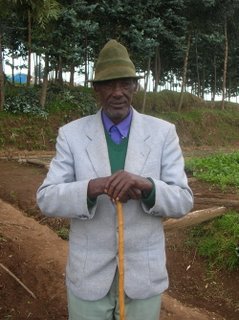

When I asked my colleague Theophile about the training schedule for my final morning at Gihembe Camp, he told me that the refugees had requested some time to be able to say thank you and farewell.
I knew from other such occasions that this would be in some ways the most difficult part of my stay in the camp, saying goodbye to people about whom I have come to care a great deal and whom I may never see again. And this time was more emotional than most because of the unexpected arrival of Devote, who had made the three-hour trip from Butare by taxi bus to see me, Bernard and Theophile, and to wish me a safe journey.
Struggling to span three languages at once, I tried to explain to the refugees how much more they do for me than I could ever possibly do for them, and the many lessons that I have learned by being with them for even this short time.
But in the end, I think that the words on the handmade drawing that they presented to me say it best:
“What you have done for me shows that you love me.”
Thank you, refugees of Gihembe Camp. À la prochaine.













